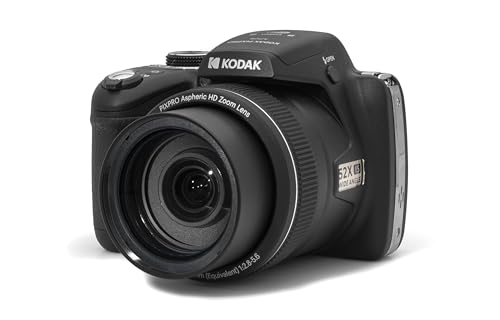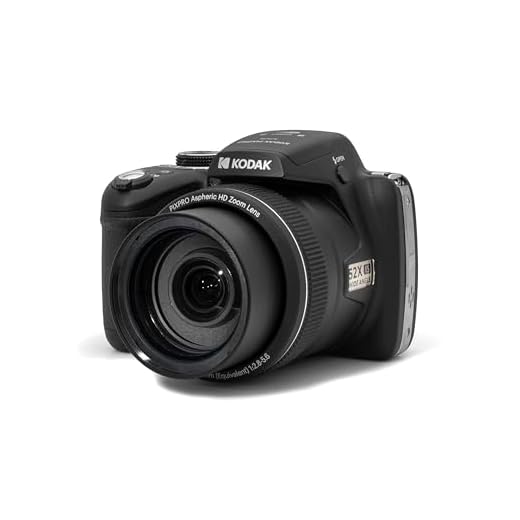




DSLR cameras are known for their versatility and high-quality images, but can they zoom in on subjects like point-and-shoot cameras? The answer is yes, DSLR cameras can zoom, but not in the same way as compact cameras with built-in zoom lenses.
Unlike point-and-shoot cameras that have a single lens with a wide range of zoom, DSLR cameras typically come with interchangeable lenses. This means that you can switch to a different lens with a specific focal length to achieve the desired zoom level. There are various types of lenses available for DSLR cameras, such as telephoto, wide-angle, and macro lenses, each offering different zoom capabilities.
Additionally, some DSLR cameras have a digital zoom feature that allows you to crop and magnify the image digitally. However, it’s important to note that digital zoom can result in a loss of image quality compared to optical zoom achieved with interchangeable lenses.
Exploring the Zoom Capability of DSLR Cameras
DSLR cameras are known for their versatility and high-quality images, but one of the key features that sets them apart from other types of cameras is their zoom capability. DSLR cameras typically come with interchangeable lenses that allow photographers to achieve different levels of zoom, depending on the lens they choose to use.
Types of Zoom Lenses
There are two main types of zoom lenses that DSLR camera users can choose from:
- Standard Zoom Lenses: These lenses cover a range of focal lengths, such as 18-55mm or 24-70mm, allowing photographers to zoom in and out within that range.
- Telephoto Zoom Lenses: These lenses offer a longer reach, with focal lengths like 70-200mm or 100-400mm, making them ideal for capturing distant subjects or achieving a closer crop of a scene.
Both types of zoom lenses give photographers the flexibility to compose their shots in various ways, whether it’s capturing a wide landscape or zooming in on a specific detail.
Zooming Techniques
When using a DSLR camera with a zoom lens, there are a few techniques that can help photographers make the most of the zoom capability:
- Experiment with different focal lengths to find the right composition for your shot.
- Use the zoom feature to isolate your subject and create a shallow depth of field.
- Consider the effect of perspective compression when zooming in on distant subjects.
By understanding the zoom capability of DSLR cameras and mastering these techniques, photographers can take their photography to the next level and capture stunning images with precision and creativity.
Understanding Optical vs Digital Zoom
When it comes to zoom capabilities in DSLR cameras, it’s essential to understand the difference between optical zoom and digital zoom. These two zoom methods work differently and have distinct advantages and limitations.
Optical Zoom
Optical zoom is a feature that changes the focal length of the camera lens to bring the subject closer without sacrificing image quality. It provides a true magnification effect by physically adjusting the lens elements to achieve a closer view of the subject. Optical zoom is preferred for capturing high-quality images with clarity and detail, especially when shooting distant subjects.
Digital Zoom
Digital zoom, on the other hand, is a software-based feature that enlarges the central portion of an image to simulate zooming. It works by cropping the image and interpolating the pixels to create the illusion of magnification. While digital zoom can make objects appear closer, it often results in a loss of image quality and detail, as the process can lead to pixelation and reduced sharpness.
| Zoom Method | Advantages | Limitations |
|---|---|---|
| Optical Zoom | High image quality, true magnification | Limited zoom range |
| Digital Zoom | Simulated magnification | Loss of image quality, pixelation |
Factors Affecting Zoom Performance
When it comes to the zoom performance of a DSLR camera, several factors can influence the quality and effectiveness of the zoom capabilities. These factors include:
| Lens Quality | The quality of the lens attached to the DSLR camera plays a significant role in the zoom performance. A high-quality lens with advanced optics can provide sharper and clearer zoomed-in images. |
| Zoom Range | The zoom range of the lens determines how close you can get to the subject. A larger zoom range allows for greater flexibility in capturing distant subjects. |
| Image Stabilization | Image stabilization technology helps reduce camera shake when zooming in, resulting in sharper images. DSLR cameras with built-in image stabilization can improve the overall zoom performance. |
| Aperture | The aperture of the lens affects the amount of light entering the camera, which can impact the zoom performance in low-light conditions. A wider aperture allows for better zoom performance in low-light situations. |
| Auto-Focus Speed | The speed and accuracy of the auto-focus system in the DSLR camera can affect how quickly and effectively it can zoom in on the subject. A fast auto-focus system can improve the zoom performance. |
Comparing Zoom Range of Different DSLR Models
When it comes to DSLR cameras, the zoom range varies depending on the model and the lens used. Here is a comparison of the zoom ranges of some popular DSLR models:
Nikon D3500
- Kit Lens: 18-55mm
- Additional Zoom Lens: Up to 200mm
Canon EOS Rebel T7i
- Kit Lens: 18-55mm
- Additional Zoom Lens: Up to 300mm
It’s important to note that the zoom range can be extended further with the use of telephoto lenses or lens extenders. Different DSLR models offer different options for enhancing zoom capabilities, so it’s essential to consider your photography needs when choosing a camera.
Utilizing Zoom Lenses for Versatile Photography
Zoom lenses are essential tools for photographers looking to capture a wide range of subjects and scenes. These versatile lenses allow you to adjust the focal length, enabling you to zoom in and out on your subject without having to physically move closer or further away. This flexibility makes zoom lenses a valuable asset for photographers in various situations.
Benefits of Using Zoom Lenses:
- Convenience: Zoom lenses offer the convenience of being able to quickly adjust your framing without changing lenses or physically moving.
- Flexibility: With a zoom lens, you can easily switch from shooting wide-angle landscapes to capturing close-up details without having to swap lenses.
- Composition Control: Zoom lenses give you greater control over your composition, allowing you to frame your shot precisely as desired.
Whether you’re shooting portraits, landscapes, wildlife, or sports, a zoom lens can help you adapt to different shooting conditions and achieve the desired results. Experimenting with different focal lengths and zoom levels can lead to creative and dynamic photography.
Tips for Maximizing Zoom Effectiveness
When using a DSLR camera with zoom capabilities, there are a few tips to keep in mind to maximize the effectiveness of your zoom:
1. Use a tripod: To avoid camera shake and ensure sharp images, especially when using maximum zoom, it’s recommended to use a tripod for stability.
2. Adjust the focus: Pay attention to the focus of your subject when zooming in, as the depth of field can become more shallow at higher zoom levels.
3. Experiment with different zoom levels: Don’t be afraid to try different zoom levels to find the best composition for your shot.
4. Use manual settings: Consider using manual settings to have more control over the exposure and other camera settings when zooming in.
5. Practice and be patient: Like any skill, mastering zoom photography takes practice and patience, so keep experimenting and learning to improve your results.
FAQ
Can DSLR cameras zoom in and out?
Yes, DSLR cameras can zoom in and out using the lens attached to them. The zoom capability depends on the type of lens you have and can vary from wide-angle to telephoto.
How does zooming work on a DSLR camera?
Zooming on a DSLR camera is achieved by adjusting the focal length of the lens. By changing the focal length, you can zoom in to make the subject appear closer or zoom out to capture a wider area.
Are there limitations to the zoom capability of DSLR cameras?
Yes, the zoom capability of a DSLR camera is limited by the focal length range of the lens you are using. To achieve greater zoom, you may need to invest in a telephoto lens with a longer focal length.
Can you zoom digitally on a DSLR camera?
Some DSLR cameras offer digital zoom functionality, but it is generally not recommended as it can reduce image quality. It is better to rely on optical zoom using the lens for better results.






